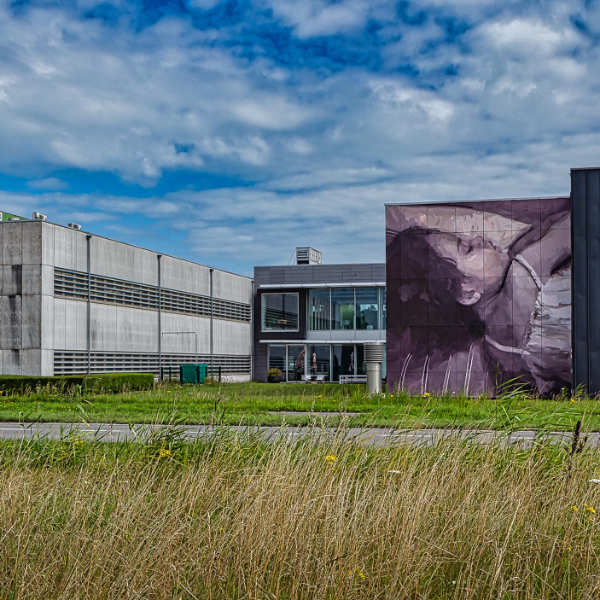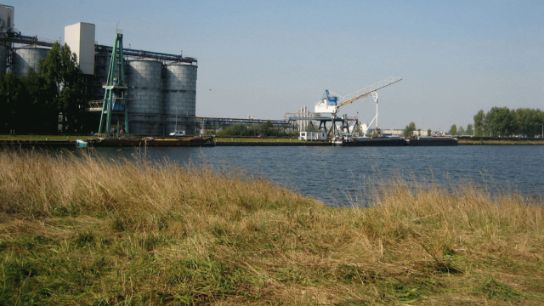Ostend Science Park – Sustainable science park in Flanders

Ostend Science Park – Sustainable science park in Flanders
Ostend Science Park (OSP) is a high-tech knowledge hub located in Oostende and has an ambitious sustainability vision. Ghent University, West Flanders Development Agency and the Port of Ostend want to cluster companies which are active within the blue economy and developing R&D activities on site.
To ensure these companies are equipped with the necessary testing facilities and know-how, the development of the science park needs to focus on innovation, sustainability and the energy-neutral character of the site. The goal is to do this with maximal local production of renewable energy and the sustainable heating and cooling of buildings.
Sustainable and innovative energy concept
To realise these ambitions, Witteveen+Bos carried out a study in collaboration with Th!nk-E and BDO aimed at developing a design and business model of a sustainable and innovative energy concept. The project falls under the European Interreg BISEPS project and Heatnet NWE.
We were commissioned to survey the techno-economic feasibility of an energy community for the Ostend Science Park. An energy community aims to maximise its use of locally generated renewable energy and to share sustainable heating and cooling between different companies setting up on the site.
From concept to business case
Our study specifically examined three scenarios:
- A low temperature district heating network using shallow geothermal energy;
- Individual heat pumps for each building;
- A district heating network fed by residual heat from nearby industry.
We carried out a technical analysis, dynamic simulations and calculated the total cost of ownership (TCO) of the energy concept. This enabled us to get a clear picture of the energy concept with the lowest costs over its lifetime.
Annual energy costs not higher than conventional energy systems
In the second phase of the project, we translated the heat concepts into a financially viable business model for the park manager and companies. Our business and operating models were calculated on the basis of outsourcing energy management to a third party, such as an energy service company (ESCO), so that the companies can focus on their business goals. The ESCO will invest in energy assets for the production and distribution of renewable electricity, heating and cooling and operate these assets for 25 years.
We concluded that a viable business model exists for an ESCO when it invests in a collective and sustainable energy concept for a business park. We also demonstrated on the basis of financial modelling that the annual energy costs for companies using the sustainable energy concept are not higher than conventional energy systems using natural gas.
Based on this study and the advice of Witteveen+Bos, OSP has decided not to include natural gas utilities in the new part of the development of the park. Ostend Science Park will be the first science park in Flanders without natural gas.
Port of Ostend

More Information?
.jpg)
Our projects
Every year we work on almost 5,000 projects on water, infrastructure, environment and construction.
